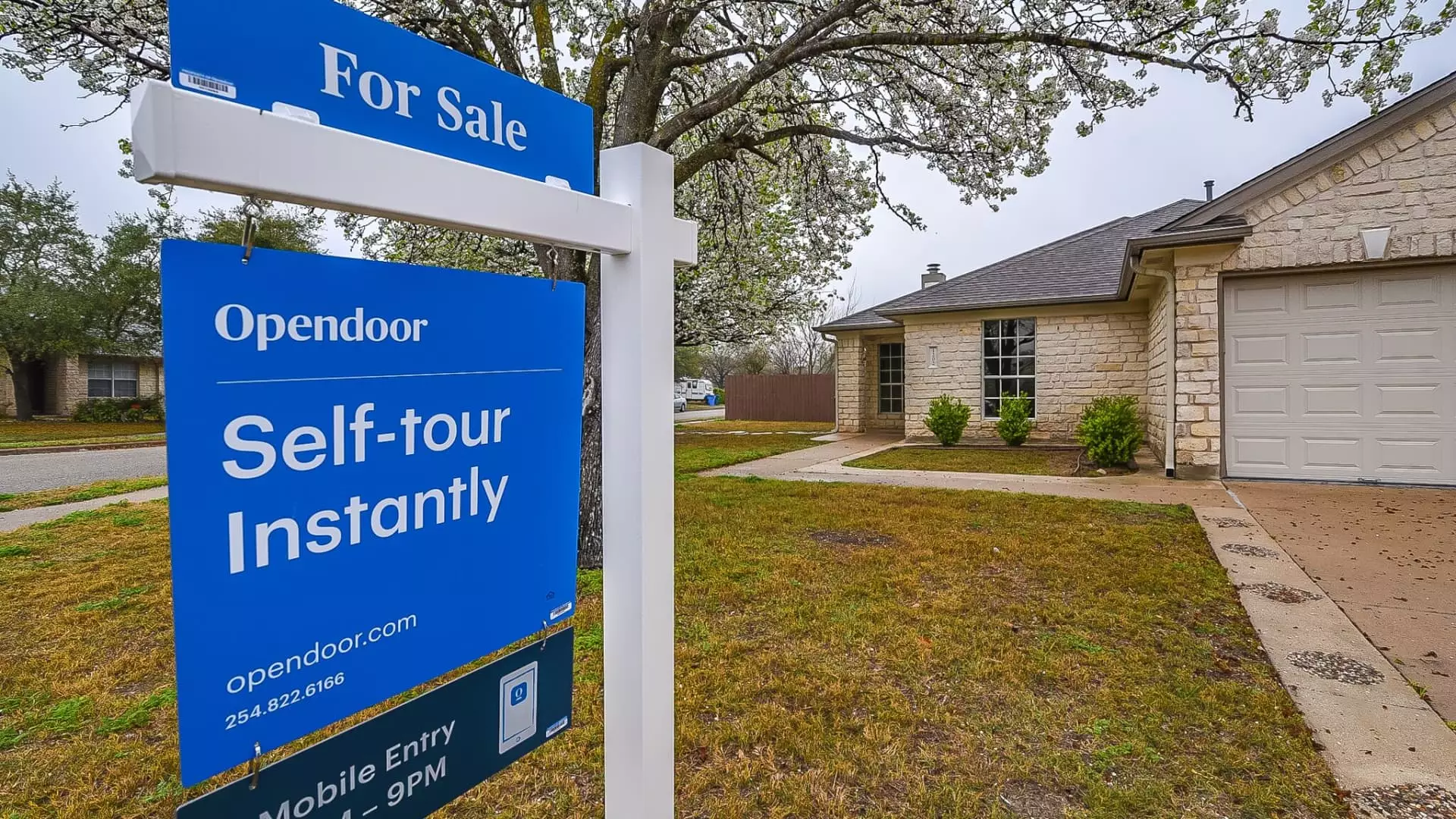Once considered a pioneer in the real estate tech space, Opendoor experienced a rollercoaster of fortunes marked by dramatic lows and unexpected rebounds. Its story is a testament to the volatile nature of innovation when intertwined with market forces. After plunging to less than a dollar in mid-2023 amid declining revenue and investor skepticism, the company’s stock staged an extraordinary rally—rising nearly fivefold since July—fueling hopes of a new chapter. This resurgence is not merely a fleeting market anomaly but reveals an underlying shift in strategy and perception. Yet, beneath the surface, profound questions remain about the sustainability of this bounce and whether Opendoor can transform its path from a capital-intensive disruptor to a resilient market shaper.
From Collapse to Comeback: Navigating a Challenging Economic Landscape
Opendoor’s collapse during 2022 was rooted in the tightening of monetary policy, which made borrowing more expensive and dampened housing demand. High mortgage rates shrank transaction volumes, impoverishing the company’s core operations. Revenues plummeted from over $15 billion in 2022 to roughly $5 billion—a stark reminder of how external economic shocks can cripple even the most ambitious companies. The company’s financial distress was so severe that a reverse stock split was proposed as a last-ditch effort to preserve its Nasdaq listing, illustrating how fragile its standing had become. As interest rates stabilized and the housing market began to show signs of resilience, Opendoor was quick to adapt, emphasizing strategic shifts to reduce reliance on capital-heavy “iBuying” and pivot toward a referral-based model.
The Power of Market Sentiment and the Role of Key Influencers
The recent surge in Opendoor’s stock can be largely attributed to investor fervor fueled by influential hedge fund manager Eric Jackson, who declared bullish intent and set ambitious price targets. Jackson’s optimism, based on predictions of a market rebound and a return to growth, has injected a measure of confidence among investors. Nevertheless, the road ahead remains fraught with uncertainty, as actual financial results tell a different story. While revenue increased modestly in the latest quarter and losses narrowed, these numbers are far from indicative of a sustainable turnaround. The market’s enthusiasm seems to hinge more on hope and strategic narratives than on hard financial improvements, raising concerns about whether it truly signifies a long-term recovery or just a speculative rally.
Strategic Shift: From Capital-Intensive to Capital-Light Models
One of Opendoor’s most significant recent developments is its pivot away from pure iBuying, which involves outright purchasing and selling homes, toward a referral-based approach that requires less capital. This strategic move aims to stabilize cash flows, reduce exposure to market downturns, and improve profitability. CEO Carrie Wheeler’s emphasis on this shift as “the most important in our history” underscores its importance. The model focuses on facilitating transactions rather than owning assets, aligning with broader industry trends favoring scalable, less capital-dependent revenue streams. If executed successfully, this transition could secure Opendoor’s position as a versatile player in the housing ecosystem, capable of weathering economic downturns more effectively.
Challenges and the Road Forward
Despite the strategic optimism, the company faces several hurdles. Expectations for revenue in the upcoming quarter suggest a continued decline, a disconcerting sign that the housing market’s recovery remains fragile. The decline in homes acquired—from 3,504 to an estimated 1,200—reflects cautious underwriting and a more conservative approach amid deteriorating market conditions. Moreover, cutting marketing expenses signals a tighter grip on cash flow but could also hamper future growth if the market does not rebound swiftly. In essence, Opendoor’s future hinges on a delicate balance: executing its strategic shift without losing relevance or operational momentum in a challenging housing landscape.
Is This the Start of a Sustainable Transformation?
The narrative shaping Opendoor’s recent trajectory prompts a critical question: Is the rally a genuine sign of a turnaround or merely a speculative blip? The company’s effort to diversify beyond its core iBuying model and openly discuss its strategic vision indicates a potential evolution. However, investor skepticism remains palpable, especially given the speculative nature of recent optimism. For Opendoor to transform its fortunes fundamentally, it must demonstrate consistent revenue growth, sustainable profitability, and an ability to adapt quickly to market fluctuations. The company’s willingness to listen and pivot suggests an understanding that survival depends on evolving beyond the limitations of its past. Whether this strategy will prove enough to establish a robust, long-term presence remains an open question—one that will undoubtedly test the resilience of both the company’s leadership and its investors.

